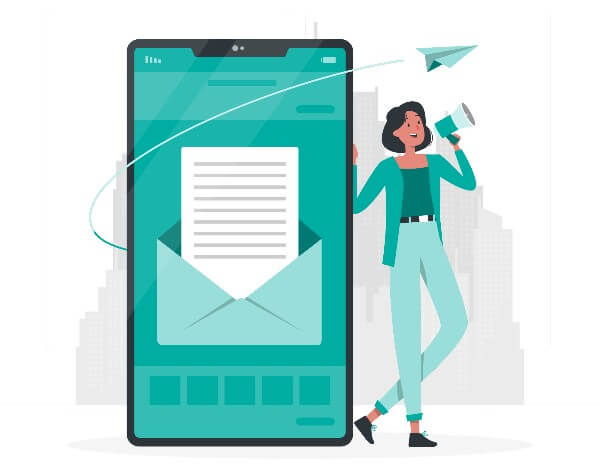If you own a business in the pharmaceutical industry, you surely know that the drug product is unique and requires a customized approach that is in line with the niche ethics, because the drug is not bought for pleasure and not for free. It is a prescription market and not a purchase market, and in most cases, the one who purchases is not the one who decides in favor of one product or another, having an involuntary addiction to that drug.
Similarly, it is well known that there is a series of restrictions and strict regulations that dictate how promotion and communication efforts are directed. It is strictly forbidden to use drugs excessively, abusively, or in the absence of a condition that would require the given treatment.
We also need to make a clear distinction between prescription-only (Rx) and over-the-counter (OTC) drugs. The actual advertising of drugs is done only at OTC. However, in the case of both categories, communication activities retain their importance, although it is obvious that there are many substantive differences in everything related to the promotion of medicines from the 2 distinct categories.
Objectives pursued in pharmaceutical marketing
- Winning the favorable attitude of customers towards the offer. A favorable attitude is created if the messages allow customers to more easily identify the company's products, understand their utility, and differentiate them from others on the market. For this purpose, the messages must contain information about the product and its qualities.
- Convincing qualified persons to contribute, disinterestedly, based on trust in the product, to the sale of the medicine, in such a way that the doctor or pharmacist is convinced of the superior quality of the medicine and contributes to its sale by prescription and recommendation. In other words, the influencing of opinion leaders and people with positions of responsibility and decision-making power should take place.
- Increasing sales and market share - stimulating demand by accelerating the awareness of needs, as well as the cultivation of desires and aspirations, especially in the case of OTC.
- Reminding - even current customers and loyal relatives must be periodically reminded of the advantages of your products.
Improving the image of the company and the products - the promotion and sale of pharmaceutical products are conditioned by the reputation of the manufacturer. The more popular a brand is compared to others in the same category, the more successful the product will be. It should be remembered here that branding also helps to balance fluctuations in demand. At the same time, a good image on the market helps to easily refute some information unfavorable to the product. Moreover, if you have a good name built on the market, you will also have higher revenues - international practice in the pharmaceutical field proves it. - Niche differentiation - promotion provides information about the true differences between various brands that are produced based on the same active substance.

So, how do we do effective and ethical marketing for the pharmaceutical market? We will make use of patient-oriented pharmaceutical marketing strategies, namely:
- Full consumer information - honest marketing and direct communication about the medicine in question. What does the information include? Product features, presentation of studies concerning the given product, as well as comparisons of its effects with others. More than a niche necessity, objective information is also a moral duty of the drug manufacturer.
- Sponsorship and participation in various medical conferences, seminars, colloquiums, and congresses of doctors - there is certainly a need to strengthen the image of the brand in front of the decision-makers, which is one of the main objectives of the promotion of the pharmacological product.
- Online promotion - website, social media page, and Google My Business profile, all these channels have an extensive online reach, bringing the brand message in front of customers who have online interactions and activities. On the Internet, communication is easier; it offers a large volume of information, it has an interactive character, the information can always be updated, it can generate a direct response, and it offers the possibility of direct communication with the potential client. Contests on social media are a good way to popularize some offers on supplements, for example.
- Specialty magazines - even though they have a coverage area thousands of times narrower than, for example, digital promotion, magazines have the same target audience as your medicine, so they can be an essential element in the marketing of health services and pharmacological products.
- Designing special loyalty strategies - such as a loyalty card with a 10% discount on the purchase of a product, offered by both prescribing doctors and collaborating pharmacies.
- Interpersonal communication is achieved with the help of medical representatives - to achieve this goal, it is necessary to use direct communication means, such as visits to partners, telephone discussions, invitations to events, and offering samples. The role of the specialized staff is to take over the message sent by the pharmaceutical company, a message that necessarily includes: the summary of the product's characteristics, the presentation of the studies carried out on the promoted product, the comparison of the product's effect with different substances from the same class or different classes, but used for the same purpose therapeutic. Medical representatives (especially doctors and pharmacists) have a decisive role in the marketing of medicine. In the case of OTC drugs and dietary supplements, where product promotion is allowed, the role of qualified personnel remains equally relevant. They have the opportunity to increase sales of the product by prescribing it and counseling patients. It is a low-cost, high-impact way of promotion. This type of promotion offers the advantage of human-to-human contact, so understanding the message is easier and can greatly influence the purchase decision. The use of promotional gifts and free samples are effective technique for promoting pharmaceutical products.
- Periodic reduction of prices and offering promotions on occasions (possibly using the marketing technique that includes group sales - promotional offers aimed at the simultaneous sale of two or more products at a promotional price): to eliminate some reluctance to buy, decrease product stocks hard to sell, countering the actions of the competition.
- Merchandising in pharmacies - the optimal placement of products on the shelf: as attractive and efficient as possible from a commercial perspective.
- PR activities - interviews, publishing news and releases about the company (at special events, such as anniversaries or inaugurations), organizing events like "Open Doors Day". Cultural and charitable events, such as supporting sports activities or humanitarian actions, will also improve the image of the company.

Do you want our specialists with more than 7 years of experience to take care of the promotion of your pharmaceutical business?
Call us today for a free pharmaceutical marketing consultation at +373 69 809 235, or leave us a message at info{@}seolitte.com!
